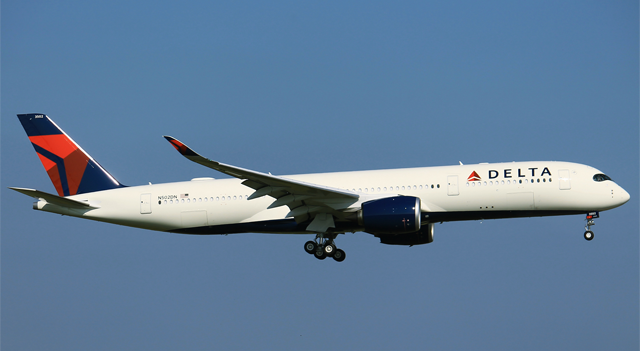Delta Air Lines (NYSE:DAL) posted a larger-than-previously estimated loss for the first three months of the year, but forecast second-quarter revenue and profit growth above analyst estimates, signaling strong demand for travel, despite weakness in other sectors.
CEO Ed Bastian on Thursday dismissed the potential for a reduction in consumer spending.
Air travel “is something the consumer prioritizes,” Bastian said in an interview. “They may be pulling back in other areas… but I don’t see that in our credit card details, I don’t see that in our bookings.”
The Atlanta-based operator said it expects sales in the current quarter to increase 15% to 17% year-over-year, with adjusted operating margins up to 16% and adjusted earnings per share between $2 and $2.25. Analysts polled by Refinitiv had forecast second-quarter revenue growth of 14.7% and earnings per share of $1.66.
The airline projected “record advance bookings for the summer”.
Bastian said the operator is scaling back its capacity growth plans for the summer in an effort to improve reliability. Airlines faced delays in aircraft delivery, backlog of staff and training, and restricted airspace.
Delta said it plans to increase capacity by 17% in the second quarter year-over-year, though that won’t take the carrier back to 2019 levels as previously planned.
“We are intentionally reducing some of the capacity,” said Bastia. “We want to make sure we don’t go beyond our capabilities.”
He said the airline should be able to reach 2019 capacity levels by the end of the year.
US airlines generally earn most of their revenue during the busy spring and summer travel season and Delta’s outlook points to greater strength in travel demand and strong pricing power. Delta is the first US airline to report the results. United will report on Tuesday and other carriers will report later in the month.
Here’s how Delta fared in the first quarter, ended March 31, compared to Wall Street expectations based on Refinitiv Consensus Estimates:
- Adjusted earnings per share: 25 cents versus 30 cents expected.
- Adjusted Income: $11.84 billion versus $11.99 billion expected.
Delta posted a net loss of $363 million, or 57 cents per share, citing, in part, a new four-year pilot agreement that includes 34% increases. That’s still an improvement over the prior year period, when travel demand was still recovering and the company posted a net loss of $940 million, or $1.48 per share.
Adjusting for one-time items, the company reported net income of $163 million, or 25 cents per share, up from a loss of $748 million, or $1.23 per share, during the first quarter of 2022.
Unit costs, excluding fuel, rose 4.7% year-on-year, partly driven by winter storms that grounded flights.
Delta said its corporate bookings are recovering, with March domestic sales 85% back to 2019 levels. It has also gained a boost in its loyalty program, with its credit card partnership with American Express (NYSE:AXP), contributing $1.7 billion in the latest quarter, up 38% year-over-year, Delta said.
The airline said sales of premium cabins, such as first class, are outpacing revenue from economy class.
Sources: CNBC, WSJ, FX empire, FX Street, Reuters, The Street
